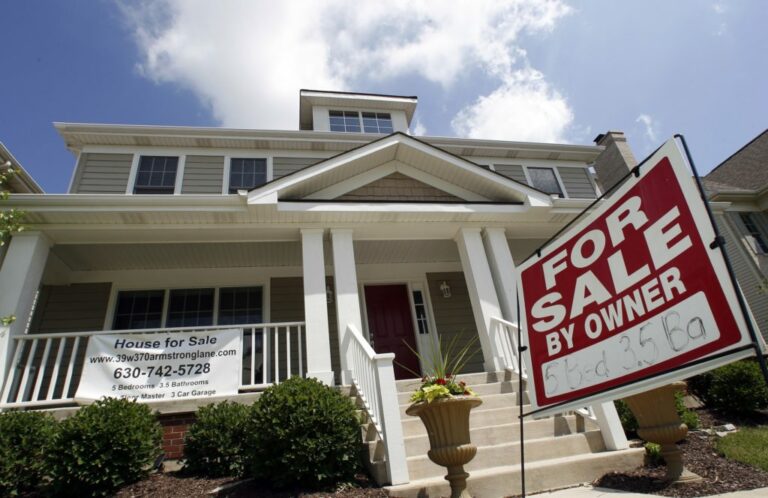Selling The OC Season 3 is one of the most perplexing seasons of reality TV I’ve ever witnessed for so many reasons. I have no idea, for instance, why Alex Hall lied about trash talking a colleague on a podcast instead of simply owning it. I have no clue why the show is trying to sell us on Hall and Tyler Stanaland’s romance when we already know they had a falling out. And I don’t know why — after two seasons of minimal screen time — Sean Palmieri loudly emerged from obscurity to claim his male coworkers are in love with him and/or tried to initiate a threesome. None of those sagas make much sense to me. But, hey! At least they involve real estate agents. The one thing I can’t wrap my head around in Selling The OC Season 3 is what the heck Ali Harper, a newly aspiring real estate agent without a real estate license, is doing on this real estate show.
From a business standpoint, numerous aspects of The Oppenheim Group’s Netflix shows are downright mortifying. Personal and professional boundaries are consistently crossed. Problematic behavior — from flirting to fights — runs rampant in the offices. And while Selling The OC’s agents successfully craft compelling reality TV, they’ve also created an extremely toxic work environment — one which edits suggest O Group boss Jason Oppenheim barely regulates. Perpetual drama and tarnished reputations aren’t a great look for business, but in the background of all the heated back and forths, it’s clear the O Group’s employees are experienced in real estate, working to sell houses, and making themselves and the company some serious cash. Everyone except Harper, because, again…she’s not a real estate agent yet!
As Decider noted in a previous piece, Harper made it to the real estate/reality TV big leagues by essentially flying to Orange County from her home in Nashville, walking into an O Group open house, and chatting up the show’s stars. That’s what Selling The OC wants us to think, at least. We have no idea how or why the former Miss Tennessee USA was actually cast on the show, but star Polly Brindle vouched for her and Jason took a chance on her, so here she is in all her inexperienced glory.
Photo: Netflix
In Season 2 we saw Harper shadow agents, start learning the real estate ropes, and assure Jason that she loved people and houses, so she’d be perfect for the career. She was so committed to proving herself that she even bet Senior Realtor Associate Gio Helou she would sell a house within two months of getting her license. If she did, he agreed to strut through the office in a bikini as a nod to her pageant days. Harper set herself up as a potential real estate wunderkind, but when Season 3 rolled around, she reminded viewers that though she may have the personality, clothes, and fight required to fit in on the show, she sorely lacks the realtor skills and smarts that should be a prerequisite for joining any agency, especially one as esteemed as The Oppenheim Group.
In Harper’s Season 3 intro, she says she packed up her whole life in Nashville to move to Orange County and “will do anything it takes to make it here,” even calling her new career path in real estate “the ultimate goal” and saying “failure is not an option.” Later in the season she reveals she completed the 135 hours of real estate coursework required to become an agent in the state of California and can apply to take the exam, which sounds promising. But from asking “What exactly is a broker’s preview?” and bombing an “easy” pop quiz from Jason to causing an unprofessional scene at one open house and showing up unprepared to another, it doesn’t feel like Harper is “doing anything it takes” to make it in OC real estate. (As of Selling The OC‘s April 24 press day, Harper had yet to take the exam because she was waiting on her application to be accepted.)
The Orange County newbie wasn’t out of line for being frustrated by Alex Hall’s podcast lies, but she shouldn’t have publicly confronted her in the middle of a professional open house, causing a petulant scene that reflected poorly on The O Group. Harper’s time at the agency should have been cut short after Polly got an email from a fellow professional complaining about her behavior. (After all, cast members repeatedly spout some version of “There are no second chances in this town. People talk.”) Instead, Jason gave her the ultimate second chance by letting her run an open house for Gio — despite Alex Hall saying, “I would never have an unlicensed agent. I would rather not hold the open house,” and Gio adding, “[Agents] can jeopardize someone who is interested with some inexperience.”
Jason argued the opportunity would be a valuable experience for Harper; that the way to learn is to just dive right in. “I certainly never sat at a 13 million listing my first year,” he added. (The reason for that, I assume, is because it’s something to be earned rather than handed?) Anyway, all the Southern Charm in the world couldn’t help Harper answer the endless stream of questions at that broker’s open. Perhaps the edit did her dirty, but from the looks of the episode she had the general bed, bath, and square footage numbers down, and not much else. A once-in-a-lifetime opportunity like that required some Rory Gilmore-level cramming and preparation. Instead, a flustered Harper told prospective buyers that Gio let “the only girl in the office without a real estate license” run his open house, reminding us the mess wasn’t solely her fault. Jason, WYD?!
Photo: Netflix
When Jason sat Harper down post-open house, he grilled her about how long the average escrow is and what types of inspectors she’d suggest to potential buyers. She couldn’t answer. “These are things you need to know already. Those were easy questions and I feel like you had plenty of time to get moving on your real estate license,” he said, asking if she actually has a passion for real estate and is serious about the career. When Harper replied “absolutely,” he stressed, “Your business card has your name and my name on it…You have a very coveted desk here, so pass your test and start producing.” Again, I ask, why does she have a business card?!
Selling Sunset has welcomed its share of new cast members in the past — from current O Group realtor associates Bre Tiesi and Chelsea Lazkani to Season 7 surprise Cassandra Dawn — and despite their differences, they all had one crucial thing in common: real estate licenses.
I’m all for an underdog story, and if Harper is truly passionate about real estate then I encourage her to keep following her dreams, but couldn’t Jason have found someone with a real estate license to take a chance on?! As far as Selling The OC‘s cast goes, Harper is one of the most down-to-earth personalities and strikes a refreshing balance in the office. As a person, she seems fine! It’s the perplexing privilege of her going from zero experience to a top agency in the luxury real estate game that prevents me from fully embracing her.
If Selling The OC gets renewed for a Season 4, perhaps Harper will study her butt off, pass her real estate exam on the first try, and start successfully selling houses for the O Group, proving she’s deserving of a coveted desk. Until she brushes up on the real estate basics, however, I don’t think Gio has to worry about strutting his stuff in a bikini anytime soon.
Selling The OC Season 3 is now streaming on Netflix.
This article was originally published by a decider.com . Read the Original article here. .




